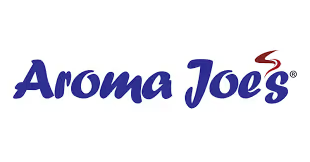Aroma Joe's is a coffee shop offering specialty coffee, espresso drinks, tea, and baked goods. The franchise provides a full-service beverage experience with a wide selection of drinks and snacks in a convenient setting.

Key Insights
- Aroma Joe's emerged when founders recognized significant opportunities to transform traditional service delivery methods within their market, developing innovative approaches that addressed specific customer pain points and established new standards for quality and reliability in the industry.
- Ordering systems integrate user-friendly technology with personalized customer service to create efficient, enjoyable dining experiences that accommodate busy schedules while providing opportunities for menu education and customization based on individual preferences and dietary needs.
- Regulatory developments create opportunities for professional service providers who maintain compliance standards and quality certifications, establishing competitive advantages for businesses that invest in proper training, procedures, and documentation to meet industry requirements.

Franchise Fee and Costs to Open
Exploring the financial picture of Aroma Joe's gives insight into both the upfront commitment and the potential revenue opportunity. According to FDD Item 7, opening this franchise typically involves an investment in the range of $586,599 - $1,859,492, along with a franchise fee of $25,000 - $25,000.
Financial Performance and Revenue
Yearly gross sales of $930,200 and estimated earnings of $111,624 - $139,530 show the potential financial performance of this franchise. These figures are crucial for prospective franchisees as they help to project revenue and profitability. They offer insight into the business's ability to generate income and can be used to compare its performance against other investment opportunities. The Franchise Payback Period of 10.2-12.2 provides an estimation of the time it might take for an owner to recover their initial investment. This metric is a key consideration for anyone evaluating the financial viability of a franchise, as it relates directly to the speed at which the business can become profitable. A shorter payback period can indicate a faster return on capital, which is a significant factor in making an informed decision about a franchise investment.
Training and Resources
Aroma Joe's provides comprehensive initial training for new franchisees. This program, approximately two weeks long, takes place at Aroma Joe's headquarters. The franchisor offers a robust training curriculum designed to equip franchisees with the knowledge and skills for operating their Aroma Joe's location. Aroma Joe's also provides access to a range of operational and marketing resources to support business growth.
Legal Considerations
Legal considerations for a Aroma Joe's franchisee are defined by the Franchise Disclosure Document (FDD) and the Franchise Agreement. This franchise does not disclose lawsuits or bankruptcy information in its FDD, but prospective franchisees should still review all terms thoroughly. Consultation with a qualified attorney is essential before making commitments.
Challenges and Risks
Operating an Aroma Joe's franchise involves navigating a dynamic local market, where understanding competitor offerings and consumer preferences is essential. Managing the day-to-day operations, from inventory control to staffing, requires efficient processes. Dependence on specific ingredient and equipment supply chains means that disruptions can impact product consistency and availability.



